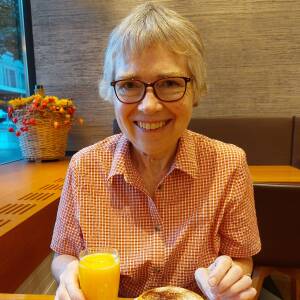Dry Darwin
Today, we explored a bit of Darwin.
It's the end of the hot, Dry season here, so most of the vegetation is looking very dried up and brown. Soon, the "Build Up" to the Wet season will begin. We are assured that although it is very hot (34C) now, it is more comfortable than it will be in the Wet season when it is both very wet and hot!
We went to the George Brown Darwin Botanic Gardens, which were first established in 1886, with Maurice Holtze and later his son Nicholas in charge. A later influential curator in 1970s and 80s was George Brown. My blip shows a Pachypodium rutenbergianum tree ( Madagascar Palm) from Madagascar which is in flower. So many plants from around the world can be grown here. Beside it is a large specimen boulder of the local rock, Porcelainite, so called because it resembles unglazed porcelain. It is a porous siliceous sedimentary rock.
Next we went to the excellent Museum and Art Gallery of the Northern Territory. Darwin is about to commemorate the 50th anniversary of Cyclone Tracy, which struck the town on Christmas Eve 1974, causing tremendous devastation, and there was a special exhibition being prepared. More than 80 % of the town's houses and 70 % of the trees in the Botanic gardens were destroyed. 66 people lost their life.We took a taxi back to our hotel and the driver regaled us with tales of the clear up in the aftermath of the Cyclone.He showed us the high school which being made of concrete and steel survived and became the disaster HQ. He helped provide electrical services. It clearly scarred everyone psychologically who was in Darwin at the time, for life.
This evening we met up with tennis playing friends of Peter's, who moved to Darwin eighteen months ago so Paul could take up the role of head of Catholic school services in the Northern Territory. We had a lovely meal at Foreshore cafe at Northcliff, watching the sun set over the sea ( a rare sight in Eastern Australia!). Paul and Mandy are very interesting and caring people. They told us about the difficulties of providing good education for the Aboriginal children who live in remote settlements. Their first language may be one of the many Aboriginal tongues that have only ever been spoken and have never been written down. It is nigh on impossible to find suitably qualified teachers to teach the children in their native languages as well as in English. They face all kinds of health and housing issues too, and their parents have difficulty finding employment, and so the problems go on! Paul and Mandy try to do their bit to make improvements, which we felt was very commendable.

Comments
Sign in or get an account to comment.


